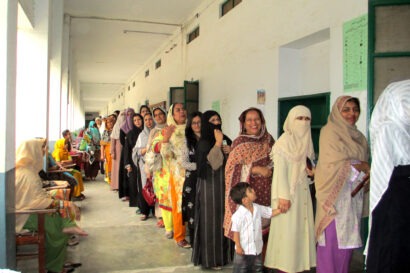Interest in wealth taxes has spiked recently due to disclosures of tax-haven abuses by the ultra-wealthy (the Panama Papers in April 2016 and the Paradise Papers in November 2017) and new empirical work on rising wealth inequality in countries around the world. These developments have led many to consider comprehensive wealth taxes as a potential solution.
Comprehensive wealth taxes offer the possibility of reducing inequality while raising revenue. However, implementing comprehensive wealth taxes can be difficult, especially in emerging economies where administrative and political limitations are often substantial.
Wealth tax add-ons: An alternative to comprehensive wealth taxes
In a recent paper, we offer an alternative set of instruments – wealth tax add-ons – that countries can use to achieve many of the goals of a comprehensive wealth tax. Rather than trying to tax all wealth with a new tax instrument, add-ons would target and tax particular forms of wealth and be attached to existing tax systems. We suggest three different types of add-ons:
- A surtax on real property for the property tax system,
- A minimum tax for closely-held businesses for the corporate tax system, and
- A Netherlands-style presumptive tax for financial assets for the personal income tax system.
Add-ons can improve the taxation of disparate forms of wealth in ways that are difficult to incorporate into a single instrument. For example, we argue that wealth in the form of closely-held businesses is best taxed at the entity level to avoid the problems of attribution and valuing minority interests – challenges that would face any comprehensive wealth tax applied at the individual level.
Tailoring wealth tax add-ons to the context
Instead of a one-size-fits-all approach of a comprehensive wealth tax, countries can design add-ons to target the forms of wealth most prevalent in that country and can address weaknesses in the existing regime for taxing income from capital. All emerging countries (and many developed countries) struggle to tax income from capital effectively. In these countries, wealth tax add-ons can play an important role in buttressing less robust income or property tax regimes.
Taxing only certain forms of wealth entails some costs. The add-ons together should cover a substantial portion of the wealth tax base. If not, significant efficiency and fairness concerns may result. Incomplete coverage may lead taxpayers to convert their wealth into assets not covered by add-ons and shift the tax burden to taxpayers who cannot change the composition of their wealth.
The paper presents an analytical framework for how particular countries might pick and tailor these wealth tax add-ons. The starting point is to collect data to understand the distribution of wealth in the country, the composition of wealth (the relative importance of different types of assets), and how the composition of wealth changes across the wealth distribution. This information will influence the design of the add-ons (especially the threshold for taxation and the rate) and the relative attractiveness of these instruments. Countries should make these determinations in the context of existing tax systems, and, in particular, how well a country’s existing systems tax income from capital.
The two-part test for wealth taxes
Whatever the political and theoretical merits of wealth taxes (including wealth tax add-ons), countries should adopt them only if they satisfy a two-part test. First, the revenue, inequality, and political benefits of the wealth tax should exceed the economic, administrative, and political costs. Second, given the challenges and constraints in tax policy and administration, investments in wealth taxes should yield greater benefits than other uses of scarce administrative resources and political capital. For example, some countries may raise more revenue and greater progressivity from setting up an audit group that focuses solely on ultra-wealthy taxpayers than from adopting a comprehensive wealth tax. Similarly, countries may be more effective in reducing levels of inequality by devoting resources to improving the design and administration of the value-added tax (VAT), and using any additional revenues to fund programs that reduce poverty or increase economic mobility.
We believe that wealth tax add-ons provide a promising alternative to comprehensive wealth taxes. If implemented well, wealth tax add-ons may yield many of the benefits of a comprehensive wealth tax at lower administrative and political cost. The wealth tax add-on approach provides countries the option of beginning with one type of add-on and then expanding to other types if the experience proves successful. Finally, wealth tax add-ons can be a temporary solution for emerging economies in which the fiscal system is still developing. As the taxation of income from capital improves under income, corporate, or property tax systems, wealth tax add-ons can be phased out. Alternatively, the successful implementation of wealth tax add-ons may be a valuable step toward building the administrative capacity and political support for future implementation of a comprehensive wealth tax.


